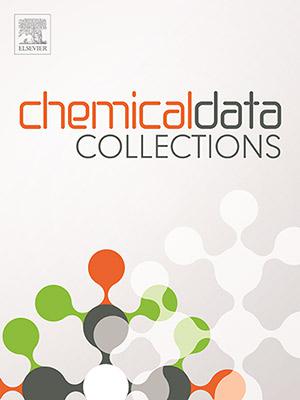关于 "不同温度下(乙二醇或甘油 + 苯或环己烷或正己烷)二元混合物的体积特性 "的评论
IF 2.7
Q2 Chemistry
引用次数: 0
摘要
Ramadevi 和同事报告了含有乙二醇或甘油与正己烷或环己烷或苯混合的二元体系的体积特性,对此进行了论证。作者研究的六种二元体系并非完全混溶,而是分离成富含多羟基醇的液相和富含烷烃的液相。本文章由计算机程序翻译,如有差异,请以英文原文为准。
Comments on “volumetric properties of binary mixtures of (ethylene glycol or glycerol + benzene or cyclohexane or hexane) at varying temperatures”
A polemic is given regarding the volumetric properties reported by Ramadevi and coworkers for binary systems containing either ethylene glycol or glycerol mixed with either hexane or cyclohexane or benzene. The six binary systems studied by the authors are not completely miscible, and separate into a polyhydroxy alcohol-rich liquid phase and an alkane-rich liquid phase.
求助全文
通过发布文献求助,成功后即可免费获取论文全文。
去求助
来源期刊

Chemical Data Collections
Chemistry-Chemistry (all)
CiteScore
6.10
自引率
0.00%
发文量
169
审稿时长
24 days
期刊介绍:
Chemical Data Collections (CDC) provides a publication outlet for the increasing need to make research material and data easy to share and re-use. Publication of research data with CDC will allow scientists to: -Make their data easy to find and access -Benefit from the fast publication process -Contribute to proper data citation and attribution -Publish their intermediate and null/negative results -Receive recognition for the work that does not fit traditional article format. The research data will be published as ''data articles'' that support fast and easy submission and quick peer-review processes. Data articles introduced by CDC are short self-contained publications about research materials and data. They must provide the scientific context of the described work and contain the following elements: a title, list of authors (plus affiliations), abstract, keywords, graphical abstract, metadata table, main text and at least three references. The journal welcomes submissions focusing on (but not limited to) the following categories of research output: spectral data, syntheses, crystallographic data, computational simulations, molecular dynamics and models, physicochemical data, etc.
 求助内容:
求助内容: 应助结果提醒方式:
应助结果提醒方式:


